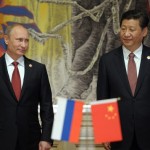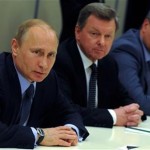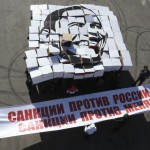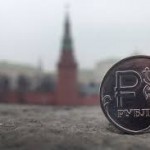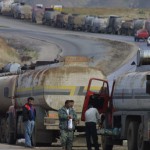Obama Meeting With Yatsenyuk Raises Stakes in Ukraine
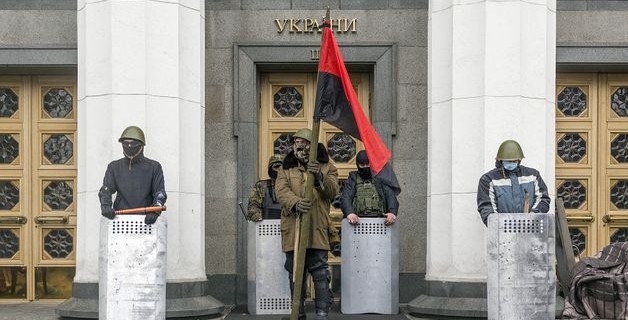
Barack Obama’s meeting with Ukraine’s prime minister today raises the stakes in his attempt to confront Russian President Vladimir Putin’s ambitions in Crimea and preempt its spread to other countries in the region.
The invitation to Prime Minister Arseniy Yatsenyuk, 39, is Obama’s latest demonstration of support for the government in Kiev before a March 16 referendum in Crimea that may result in the the autonomous region joining Russia. The U.S. regards the vote as illegitimate.
Since Russia used its troops to gain dominance in Ukraine’s Crimea region last month, Obama has spoken out repeatedly and has used diplomatic pressure, authorized economic sanctions and had forces participate in military maneuvers to pressure Putin to pull back. The U.S. has yet to succeed, and the Yatsenyuk meeting presents another opportunity as well as a risk.
“As anyone who’s familiar with Russia knows, you can threaten them in private and make clear what costs they’re going to face,” said Leslie H. Gelb, president emeritus of the Council on Foreign Relations. “But if you want to avoid catastrophe, publicly the diplomacy should have been geared toward helping Putin climb down.”
Obama’s public campaign has included phone calls or meetings by him or Vice President Joe Biden with at least 20 foreign leaders to rally opposition to Russia’s incursion into Crimea and threats against the central government in Kiev.
Putin Talks
Obama, 52, also has talked with the Russian leader directly at least three times, urging Putin to accept a plan involving mediation with U.S. and international input and Russian troops returning to their base in Crimea. To add bite, he authorized sanctions and asked Congress to provide $1 billion in loan guarantees for Ukraine. The U.S. yesterday conducted military training exercises with nearby Bulgaria, Poland and Romania.
Putin, 61, so far has been unmoved, even as the crisis threatens to crimp the Russian economy. Russia’s Micex Index dropped to the lowest in a week yesterday, and the ruble has weakened 10 percent to the dollar this year. The average yield on Russian corporate bonds jumped 20 basis points to 6.55 percent, the highest since January 2012, according to the Bank of America Merrill Lynch index data.
White House press secretary Jay Carney said the administration’s goal is for an international coalition “to speak in a clear voice” in opposition to Russia’s military intervention and the referendum in Crimea.
Russian Interests
At the same time, Carney said “we acknowledge that Russia has real interests in Ukraine and deep historical, cultural and economic ties to Ukraine.” The U.S. goal is “resolving this diplomatically and peacefully,” he said.
Steven Pifer, a former U.S. ambassador to Ukraine, said the crisis has put the entire region on edge.
“Every neighbor around Russia, their concern is, if the Russians take a chunk of Ukraine’s territory, will they come and look at us next?” said Pifer, who directs the Arms Control and Non-Proliferation Initiative at the Brookings Institution, a policy center in Washington. “You have a lot of countries around Russia much more worried today than two weeks ago.”
For the acting government in Kiev, Pifer said, Yatsenyuk’s invitation to the White House is “seen as a big plus” in showing the U.S. government’s support. Yatsenyuk also is scheduled to meet with Secretary of State John Kerry and with members of the U.S. House of Representatives and Senate, and speak tomorrow to the UN Security Council in New York.
Gelb said Obama’s approach may backfire.
Daring Putin
The situation is tangled with Ukrainian corruption and economic decline, Russian pride, and ill-conceived overtures by the European Union, Gelb said. By publicly threatening the Russians with sanctions and using harsh rhetoric, the Obama administration dared Putin to dig in, he said.
The State Department issued a document “calling Putin a liar,” Gelb said. “Now, he is a liar, but you don’t call him a liar. There’s plenty of liars in the world. How many leaders can we call liars?”
He faulted Kerry, Defense Secretary Chuck Hagel and National Security Adviser Susan Rice, who Gelb said are “not experts” on Russia.
If the referendum goes forward and backs Crimea joining Russia, “We’re stuck,” Gelb said.
The U.S. may feel it needs to impose sanctions, then Russia may cut off gas supplies to Ukraine, he said. The U.S. may find it increasingly difficult to cooperate with Russia on Syria and Iran or seek its assistance as the U.S. tries to get troops out of Afghanistan. “There’s going to be a period of ugly hardball.”
Source: bloomberg









